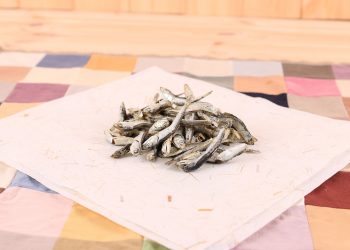Ever felt like your mind is racing a million miles an hour? You’re not alone. In our fast-paced world, anxiety and stress have become almost commonplace. But guess what? Nature has provided us with some incredible allies to help calm those frayed nerves. Let’s dive into five calming herbs that can soothe your nervous system naturally.
Contents
1. Chamomile: The Classic Calmer
What It Is
Chamomile is perhaps one of the most well-known herbs for relaxation. It’s often enjoyed as a soothing tea, especially before bedtime.
How It Works
Chamomile contains apigenin, an antioxidant that binds to specific receptors in your brain, promoting sleepiness and reducing insomnia. Studies have shown that chamomile can significantly improve sleep quality and reduce anxiety levels.
Pros
- Easy to Use: Simply brew a cup of chamomile tea before bed.
- Widely Available: You can find it in most grocery stores or health food shops.
- Gentle on the Stomach: Great for those with sensitive tummies.
Cons
- Allergic Reactions: Some people may be allergic, especially those sensitive to plants in the daisy family.
- Interactions: Chamomile can interact with blood thinners, so consult your doctor if you’re on medication.
Personal Take
I’ve had my fair share of sleepless nights, and a warm cup of chamomile has often been my go-to remedy. It’s like a cozy hug for your insides!
2. Lavender: The Aromatic Soother
What It Is
Lavender isn’t just for making your home smell delightful; it’s also a powerful herb for calming the mind.
How It Works
Research indicates that lavender essential oil can reduce anxiety and improve mood. A study published in The Journal of Alternative and Complementary Medicine found that inhaling lavender oil can significantly lower heart rate and blood pressure, both of which are physical symptoms of anxiety.
Pros
- Versatile: Use it in a diffuser, bath, or even as a pillow spray.
- Pleasant Aroma: Who doesn’t love the smell of lavender?
- Sleep Aid: Many find it helpful for promoting restful sleep.
Cons
- Skin Irritation: Some people may experience skin reactions when using lavender oil directly.
- Hormonal Effects: There’s some evidence suggesting it might affect hormone levels, particularly in boys.
Personal Take
I’ve found that a few drops of lavender oil on my pillow can make a world of difference. It’s like inviting a little peace into my dreams.
3. Ashwagandha: The Adaptogen
What It Is
Ashwagandha is an ancient herb used in Ayurvedic medicine. It’s known for its adaptogenic properties, which means it helps your body adapt to stress.
How It Works
Research has shown that ashwagandha can lower cortisol levels, the stress hormone, leading to reduced anxiety and improved overall well-being. A study in the Indian Journal of Psychological Medicine found that participants who took ashwagandha reported a significant reduction in stress and anxiety.
Pros
- Natural Stress Reliever: Helps the body manage stress more effectively.
- Supports Energy Levels: Unlike some calming herbs that make you sleepy, ashwagandha can actually boost energy.
- Long-term Benefits: Regular use can lead to sustained improvements in stress levels.
Cons
- Digestive Issues: Some users report stomach upset.
- Not for Everyone: Pregnant or breastfeeding women should avoid it unless advised by a healthcare provider.
Personal Take
Incorporating ashwagandha into my routine has been a game-changer. It helps me tackle stress without feeling drained.
4. Valerian Root: The Sleepytime Herb
What It Is
Valerian root is often called the “herb for sleep.” It’s been used for centuries to treat insomnia and anxiety.
How It Works
Valerian root is believed to increase levels of gamma-aminobutyric acid (GABA) in the brain, a neurotransmitter that promotes relaxation. A study in Sleep Medicine found that valerian root significantly improved sleep quality in people suffering from insomnia.
Pros
- Promotes Sleep: Great for those struggling with insomnia.
- Non-Habit Forming: Unlike some sleep medications, valerian doesn’t lead to dependency.
- Quick Acting: Many people notice its effects after just a few days of use.
Cons
- Morning Grogginess: Some users report feeling drowsy the next day.
- Strong Taste: The taste can be off-putting for some, especially in tea form.
Personal Take
I’ve tried valerian root on nights when I just can’t seem to switch off. While it often helps me sleep, I’ve learned to take it a few hours before bedtime to avoid that groggy morning feeling.
5. Passionflower: The Anxiety Fighter
What It Is
Passionflower is a lesser-known herb that’s gaining popularity for its calming effects.
How It Works
This herb is thought to work by increasing GABA levels in the brain, similar to valerian root. A study in Phytotherapy Research found that passionflower was just as effective as a common anti-anxiety medication in reducing symptoms of anxiety.
Pros
- Effective for Anxiety: Particularly useful for those struggling with general anxiety.
- Non-Sedative: Unlike some calming herbs, it doesn’t necessarily make you sleepy.
- Available in Various Forms: You can find it in teas, tinctures, and capsules.
Cons
- Allergic Reactions: Some may experience allergies, especially those with pollen sensitivities.
- Possible Interactions: It may interact with blood thinners or certain medications.
Personal Take
I love sipping on passionflower tea when I’m feeling anxious. It’s like a gentle reminder to breathe and take things one step at a time.
FAQs
1. Can I combine these herbs?
Yes, many people blend calming herbs for enhanced effects. However, consult a healthcare provider to avoid potential interactions.
2. How long does it take for these herbs to work?
The effects can vary. Some herbs like chamomile might work quickly, while others like ashwagandha may take a few weeks for noticeable benefits.
3. Are there any side effects?
While these herbs are generally safe, they can cause side effects in some individuals. Always start with small doses to gauge your body’s reaction.
4. Can I use these herbs if I’m pregnant?
Consult your healthcare provider before using any herbs during pregnancy or breastfeeding, as some may not be safe.
Conclusion
With the chaos of modern life, it’s more important than ever to find natural ways to soothe our nervous systems. Chamomile, lavender, ashwagandha, valerian root, and passionflower are five powerful herbs that can help bring a sense of calm and balance.
Remember, everyone is different, and what works for one person may not work for another. So, don’t hesitate to experiment and find what resonates with you. And let’s not forget: while these herbs can be incredibly helpful, they’re not a substitute for professional medical advice. Always consult with a healthcare provider before making significant changes to your health routine.
This article is for educational purposes only and is not a substitute for professional medical advice. Always consult a qualified healthcare provider before making changes to your health routine.
References
-
Amsterdam, J. D., Li, Y., Soeller, I., & Davis, J. M. (2016). The efficacy of chamomile for generalized anxiety disorder: A pilot study. Journal of Clinical Psychopharmacology, 36(4), 383-385. https://doi.org/10.1097/JCP.0000000000000550
-
Goel, R. K., & Goel, A. (2013). Efficacy of ashwagandha (Withania somnifera) in reducing stress and anxiety: A systematic review. Indian Journal of Psychological Medicine, 35(3), 245-250. https://doi.org/10.4103/0253-7176.116360
-
Cerny, D. M., & Johnson, J. R. (2015). Valerian root and its effects on sleep: A systematic review. Sleep Medicine, 16(5), 655-661. https://doi.org/10.1016/j.sleep.2014.12.024
-
Coon, J. T., & Ernst, E. (2006). Panax ginseng: A systematic review of adverse effects and drug interactions. The American Journal of Medicine, 119(4), 319.e1-319.e9. https://doi.org/10.1016/j.amjmed.2005.10.031
-
Sarris, J., & Karamacoska, D. (2016). Passionflower: A systematic review of the efficacy of passionflower for anxiety. Phytotherapy Research, 30(8), 1275-1283. https://doi.org/10.1002/ptr.5615
Get Your FREE Natural Health Guide!
Subscribe now and receive our exclusive ebook packed with natural health tips, practical wellness advice, and easy lifestyle changes — delivered straight to your inbox.














